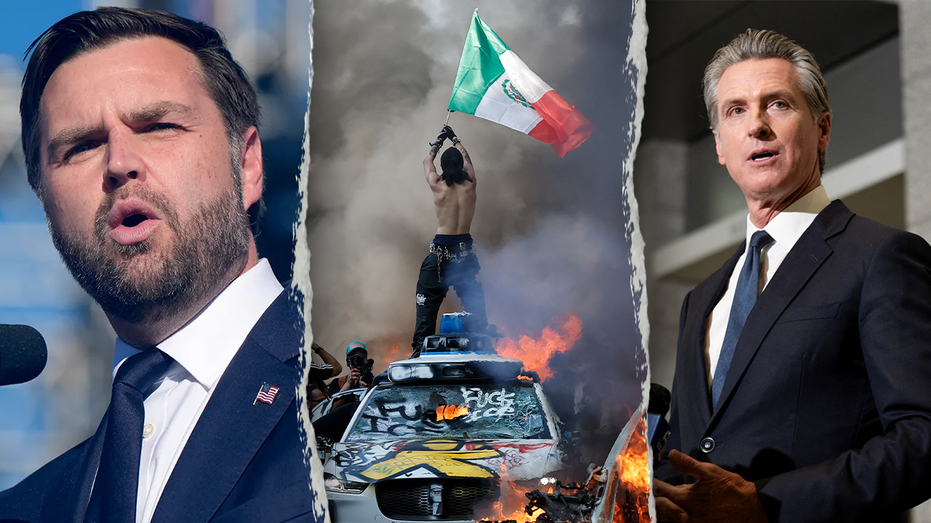Sen. Ted Cruz (R-Texas) and conservative media personality Tucker Carlson doubled down on their feud over U.S. involvement in the escalating war between Israel and Iran, with each releasing their own podcasts on Friday following up on the fiery debate earlier this week.
The ongoing war of words between the two high-profile conservative thought leaders — both of whom have left the door open to a possible 2028 presidential run — could offer a glimpse at what the first Republican presidential primary of the post-Donald Trump era might look like.
“It was a bloodbath,” Cruz said of his appearance on Carlson’s podcast on an episode of “Verdict with Ted Cruz,” the show he hosts. “The two of us, frankly, beat the living daylights out of each other for two hours straight.”
Carlson and Cruz’s contentious conversation — in which both men repeatedly shouted at each other and traded personal insults — revealed fissures on the right between pro-Israel Republicans urging the White House to launch an attack on Iran and conservative isolationists who hope the president will uphold his commitment to keep the U.S. out of foreign conflicts.
On Friday, both insisted on their respective podcasts that the other was leading the U.S. down the wrong path. Carlson said Cruz’s ominous warnings of Iran’s nuclear capabilities were part of an effort to “justify American involvement in regime change.”
“[Carlson] has gotten to a place of hardcore isolationism that I think is really dangerous,” Cruz said on his podcast.
Cruz and Carlson’s disagreement over the U.S.’ policy over the escalating conflict in the Middle East will play out in the coming days. Trump told reporters in New Jersey on Friday he’s taking “a period of time” to decide whether to strike Iran, and that the self-imposed two-week timeframe to launch a strike the White House announced on Thursday would be the “maximum.”
But the two men may also find themselves in competing lanes of the 2028 Republican presidential primary, where the intraparty debate between war hawks and isolationists could be a fault line for Republican primary voters.
Carlson said he would consider running for president in 2028 in an episode of his podcast last year, while conceding in the same breath, “I don’t think I’d be very good at it.”
“I would do whatever I could to help,” he told fellow conservative podcast host Patrick Bet-David. “I want to be helpful.”
Cruz, who ran for president against Trump in a bitterly-contested 2016 primary that was punctuated with personal attacks, has not closed the door on a 2028 presidential run.
When asked about the possibility of running in 2028 by POLITICO in April, Cruz said he’s focused on delivering legislative victories for Republicans — even as he uses his new post heading the Senate Commerce Committee to put his stamp on the direction of the party.
Perhaps further forecasting another dynamic of the 2028 primary, Trump refused to show a preference for Carlson or Cruz’s position, instead offering praise to both men when asked about the interview.
“Tucker is a nice guy. He called and apologized the other day, because he thought he said things that were a little bit too strong, and I appreciated that,” Trump told reporters on Thursday. “And Ted Cruz is a nice guy. He’s been with me for a long time.”
.png)














 English (US)
English (US)